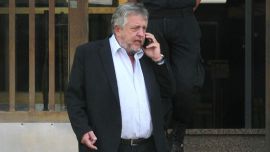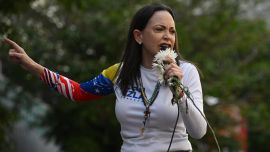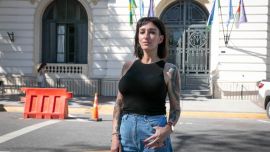Former Bolivia president Evo Morales says he was forced from office by a United States-backed coup d'état aimed at gaining access to the country's vast lithium resources.
Demand for lithium is expected to grow globally as it is one of the key components in batteries used in high-tech equipment such as laptops and electric cars.
Morales resigned as president on November 10 after almost three weeks of protests against his controversial re-election to an unconstitutional fourth term in a poll widely denounced as rigged.
His resignation came after then-chief of the Armed Forces General Williams Kaliman publicly stated the former trade union leader should step down.
But since then, Morales – Bolivia's first indigenous president – has claimed to have been the victim of a coup d'état.
"It was a national and international coup d'etat," Morales told the AFP news agency in an exclusive interview in Buenos Aires, where he has been living in exile after claiming asylum. "Industrialised countries don't want competition."
Morales said Washington had not "forgiven" his country for choosing to seek lithium extraction partnerships with Russia and China rather than the US.
"That's why I'm absolutely convinced it's a coup against lithium," he said.
"We as a state had begun industrialising lithium... As a small country of 10 million inhabitants, we were soon going to set the price of lithium. They know we have the greatest lithium reserves in the world of 16,000 square kilometres (over 6,100 square miles)."
Bolivia does have the largest confirmed lithium resources in the world, but they are widely thought to be of poor quality, and the country lacks the infrastructure to exploit them profitably.
'Prepared in advance'
As for his unconstitutional candidacy in the last election – Bolivian presidents are limited to two successive terms but Morales was going for a fourth -- the socialist leader was unapologetic.
"We won in the first round," he said, despite the audit by the Organisation of American States (OAS) that found clear evidence of vote- rigging.
"So our participation was in no way a failure. But the coup d'état was prepared in advance."
Morales has been barred by right-wing interim President Jeanine Añez from standing in re-scheduled elections due to take place early next year, but for which no date has yet been set.
Having originally accepted asylum in Mexico when he first left Bolivia claiming his life was in danger, Morales has based himself in Argentina since December 10.
His Movement for Socialism (MAS) party has even named him campaign chief for the upcoming poll.
Morales said a new MAS candidate will be picked during a party assembly on January 15, which could be held in either Bolivia or Argentina.
Bolivia's government has issued an arrest warrant for Morales should he try to return to his homeland.
Whoever the candidate is, Morales says he wants the next election to be monitored by foreign organisations.
"There needs to be an international mission, international organisations like the Carter Center, a committee of Nobel Peace Prize winners, Pope Francis, the United Nations, or some well-known global" organisation, said Morales.
"Despite so much defamation and persecution and still without a candidate, we're still first in right-wing polls, which is surprising. If MAS wins the election, the results have to be respected. We'll respect them."
Morales was likely referring to a recent poll in Pagina Siete newspaper – a publication against which he ordered a criminal investigation in 2012, having accused it of being an instrument of Chile's far right.
In that poll, Andronico Rodíiguez, the 30-year-old coca-growers union leader widely expected to be the MAS presidential candidate, came top with 23 percent ahead of former president Carlos Mesa at 21.
Mesa was the candidate beaten into second place by Morales in October's election.
'Responsible for massacres'
One group Morales didn't include in his observation wish list was the OAS, whose general secretary Luis Almagro accused the socialist leader of being the orchestrator of a coup by standing in the last election despite being constitutionally barred from doing so.
Dozens of people were killed in clashes after the OAS audit's findings were published.
"Luis Almagro deserves to be put on trial for being responsible for so many massacres and deaths in Bolivia," said Morales.
Almagro has said Morales pleaded with him not to publish the audit's results as he feared it would lead to civil unrest.
by Liliana Samuel, AFP


























Comments